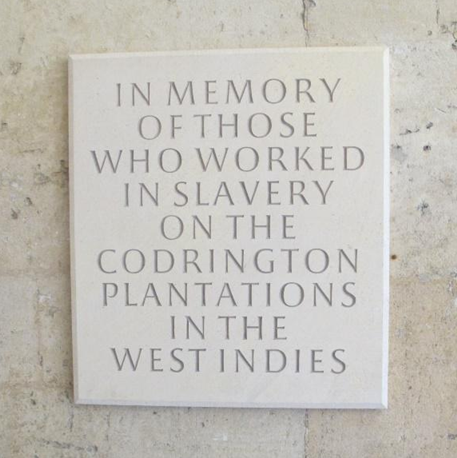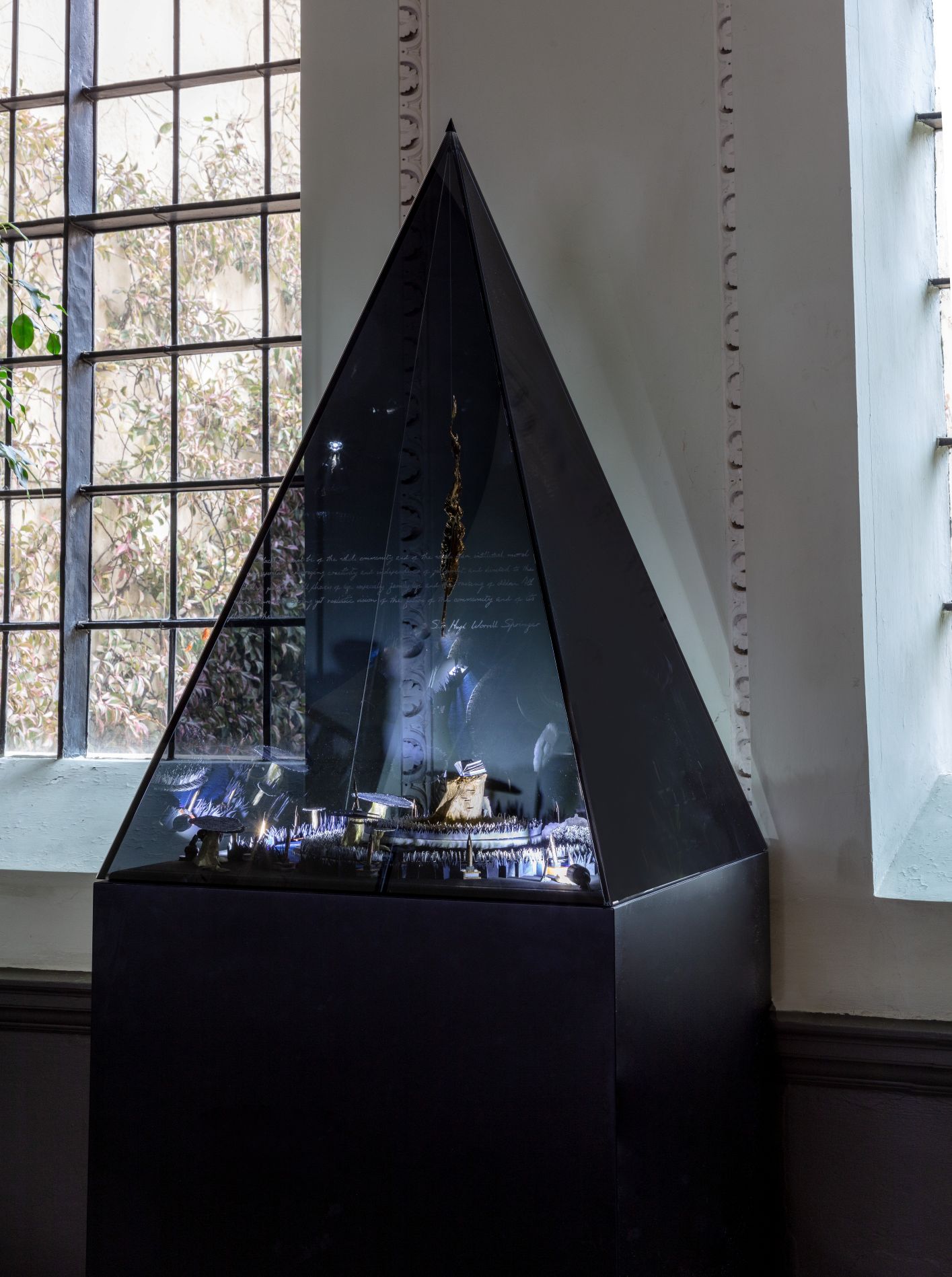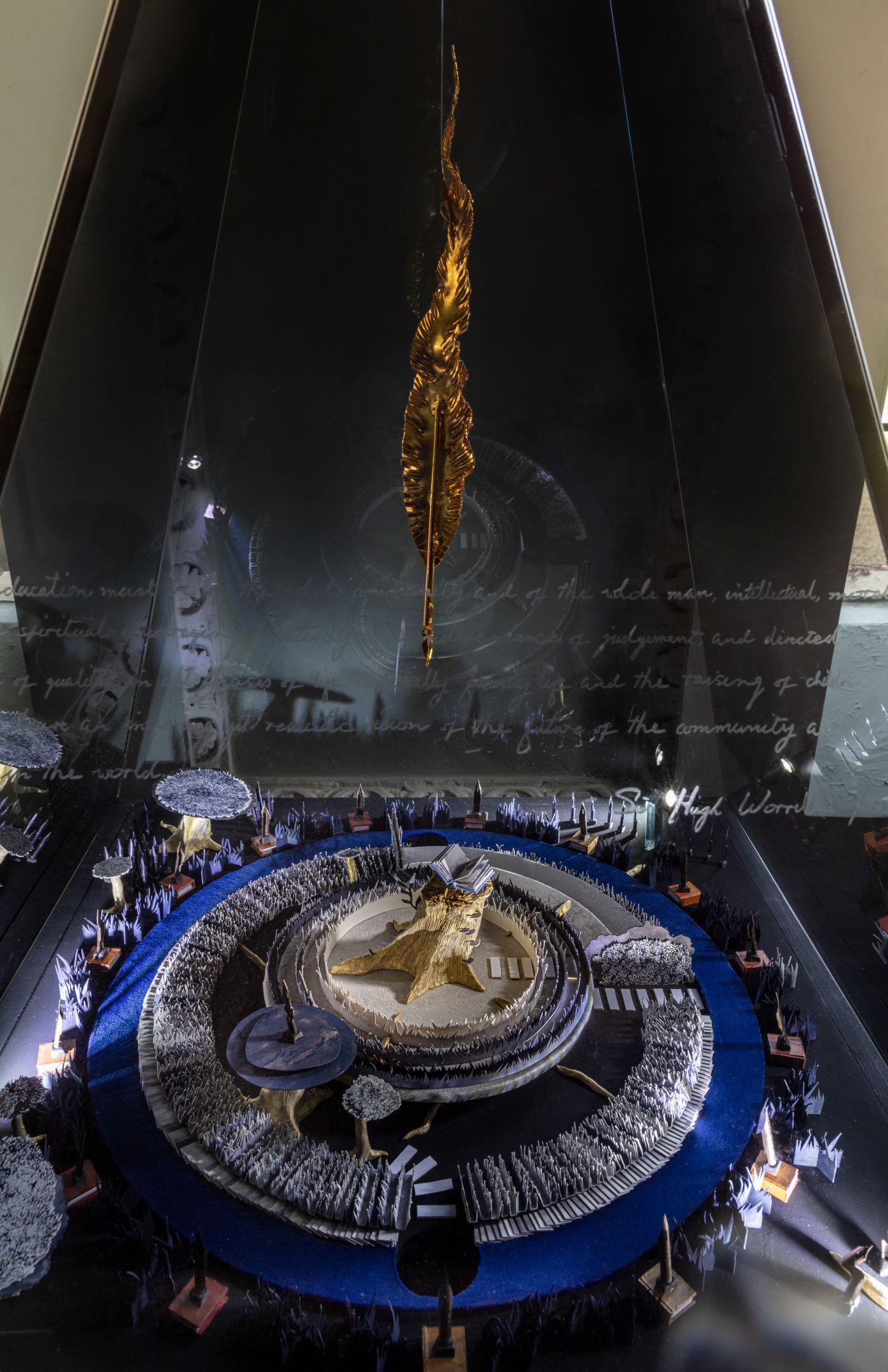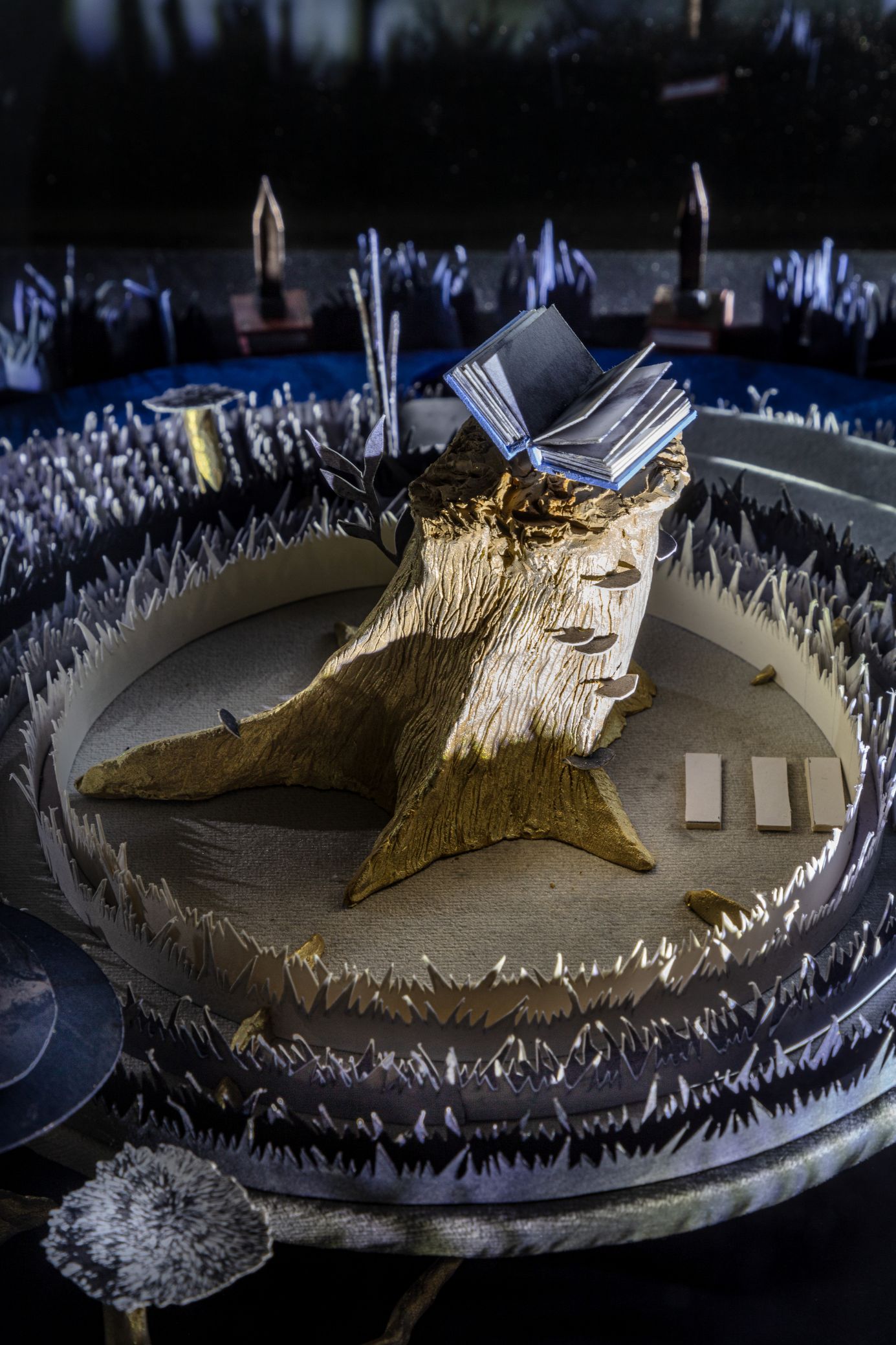The Codrington Legacy
Christopher Codrington, a former Fellow of All Souls, died in 1710, leaving a bequest of £10,000 to the College for building a new library and stocking it with books; this new library became generally known as the Codrington Library, although that name was never formally adopted by the Statutes of the College. Codrington’s wealth derived largely from his family’s activities in the West Indies, where they owned plantations worked by enslaved people of African descent.
The College has taken several steps to address the problematic nature of the Codrington legacy.
It has erected a memorial plaque at the entrance to the Library, ‘In memory of those who worked in slavery on the Codrington plantations in the West Indies'.

In 2020 a series of donations to Codrington College, Barbados (a theological college also founded by a bequest in Codrington’s will) were pledged to a total of £100,000.
Three fully funded graduate studentships at Oxford were also set up for students who are ordinarily resident in or are nationals of a Caribbean country, and who identify as of Black or Mixed Black ethnicity. These are named after Sir Hugh Springer (1913-94), who was a Visiting Fellow of the College in 1962-3, and who became Governor-General of Barbados in 1984.
£6 million of the College’s endowment is now set aside, on a permanent basis, to produce the income that funds these studentships.
The College has more recently commissioned a work of art commemorating the College’s first black Caribbean Fellow, Sir Hugh Springer. This was commissioned from the Barbadian artist Versia Harris in 2023 and unveiled in the Library anteroom in 2024. The artist’s own introduction to her work can be read here. The commission is also discussed here in an article by Dame Marina Warner, Fellow of the College.



[Photographs by Richard Ivey]
The College also decided that the statue of Codrington which stands at the centre of the Library will remain there. Onto it are projected a sequence of the names of some of those who were enslaved on Codrington’s plantations and adjacent estates in the early eighteenth century. An explanation of the projection, comprising a list of names of enslaved people, a map of Codrington's plantation, and an extract from his will is displayed alongside the statue.
Display Screens
The statue is further contextualised by digital displays in the ante-room of the Library, through which users pass. Currently there are three presentations:
Screen 1: Christopher Codrington: statue and context, followed by Christopher Codrington and the Welfare of the Enslaved on his Plantations
Screen 2: Still Breathing - 20 April 2023
The two additional screens in the main body of the library, located to either side of the statue, carry the explanation of the projected names, and the presentations previously displayed in the Ante Room; all can be viewed here:
Christopher Codrington and the Library: the building and the statue,
Nineteenth Century Benefactors of the College and the Legacies of Enslavement
Christopher Codrington: religion and the founding of Codrington College (includes slides supplied by Codrington College)
Christopher Codrington: his attitudes, beliefs and role in the slave trade (a presentation created for the College by museumand) and
The Codrington Family in Antigua and Barbuda.
Further presentations will be added as they are made possible by the continuing research.
2021 Initiatives
In June 2021 the College also agreed further academic initiatives, including:
A donation of £1 million over ten years to Oxford University’s new Black Academic Futures programme to support UK graduate students who are of Black or Mixed Black ethnicity
Further financial support to Codrington College in Barbados
An annual lecture on the modern Atlantic World with reference to slavery and colonialism
The inaugural lecture in this series, ‘Race-thinking and the Half-life of Atlantic Slavery’, was given by Professor Paul Gilroy FRSL FBA (UCL) on 8 March 2023 [recording]
The second lecture, ‘Salvage: Readings from the Wreck’, was given by Dionne Brand on 6 March 2024
A programme of visiting fellowships and travel grants enabling Caribbean researchers to come to Oxford - CaribOx (calls now open)
The Ante Room Book Collection (Hist.AA)
The Library actively collects books about Caribbean history and culture, the history of global enslavement, decolonisation, social movements relating to these subjects, and other associated topics, as a way of supporting research into legacies related to the Codrington statue and the Library.
The collection is arranged according to the table below, which follows the Library's schema for history (a geographical division, with a secondary temporal subdivision).
International | Russia &c | ||
Great Britain | Scandinavia &c | ||
Scotland | South East Europe | ||
Ireland | Near & Middle East | ||
France | India | ||
Spain & Portugal | Far East & Antipodes | ||
Italy | Africa | ||
Netherlands &c | United States | ||
Germany | Central America & Caribbean | ||
Austria &c | South America |
It is possible to 'browse' this collection by using the Oxford online catalogue, using a search based on the shelfmarks of each section (see full instructions).
E-books
In 2023, the Library provided funding for the Bodleian Libraries to purchase an additional 12 e-books about Caribbean history, to make these works more accessible to students and researchers at the University of Oxford. The Library will continue to make such grants as part of its commitment to provide works on decolonisation in all its forms. The links below will take you to the books’ records, and those with a University of Oxford SSO (Single Sign On) may log in and use the books via SOLO (Search Oxford Libraries Online).
John Aarons et al. (eds.), Archiving Caribbean Identity: Records, Community, and Memory (2022). [link]
Bruce Chadwick, Creole Rebellion: The Most Successful Slave Revolt in American History (2022). [link]
Malcolm Ferdinand and Anthony Smith, A Decolonial Ecology: Thinking from the Caribbean World (2022). [link]
Eduardo Grüner and Ramsey McGlazer, Haitian Revolution (2020). [link]
Lynn Harris and Valerie Johnson (eds.), Excavating the Histories of Slave-Trade and Pirate Ships (2022). [link]
Michael Jarvis, Isle of Devils, Isle of Saints: An Atlantic History of Bermuda, 1609-1684 (2022). [link]
Stéphanie Melyon-Reinette, Memorializing and Decolonizing Practices in the Francophone Caribbean and Other Spaces (2021). [link]
Celia Naylor, Unsilencing Slavery: Telling Truths about Rose Hall Plantation, Jamaica (2022). [link]
Nick Nesbitt, The Price of Slavery: Capitalism and Revolution in the Caribbean (2022). [link]
Jerome Teelucksingh, Rise and Fall of an Empire: A Progressive Caribbean (2020). [link]
Dale Tomich, et al., Reconstructing the Landscapes of Slavery: A Visual History of the Plantation in the Nineteenth-century Atlantic World (2021). [link]
Richard Lee Turits, Foundations of Despotism: Peasants, the Trujillo Regime, and Modernity in Dominican History (2003). [link]